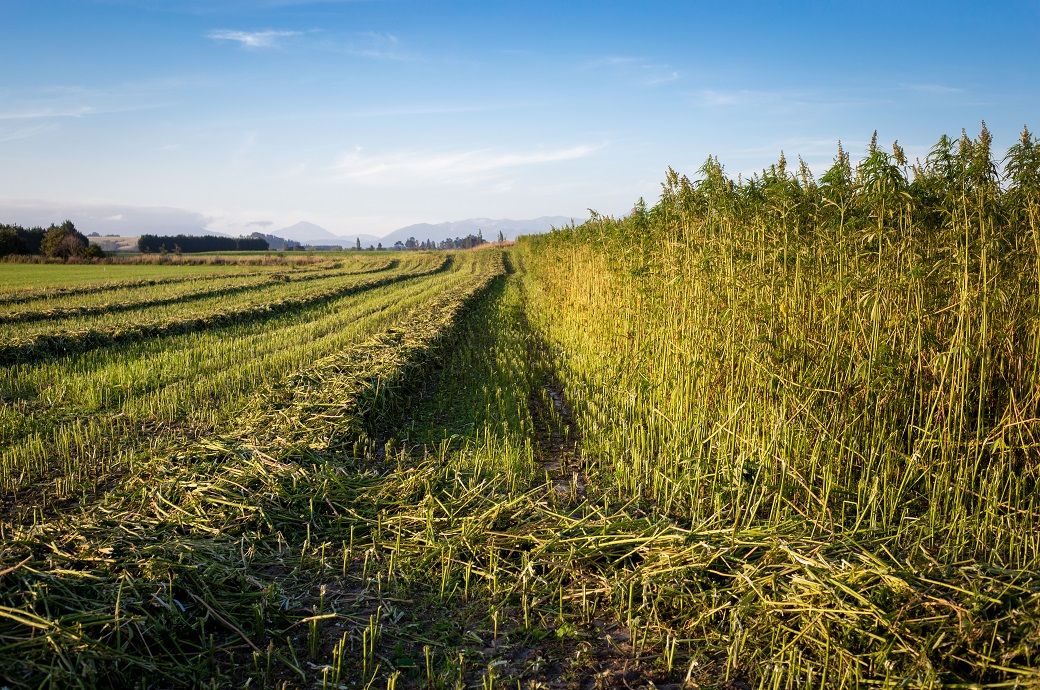
This initiative is bringing together key players across India’s textile ecosystem to enable the large-scale adoption of fibres made from agricultural waste. The aim is to build a truly circular and regenerative supply chain from post-harvest residue to finished garments and furnishings.
Biodegradable Altag benefits
At the core of the initiative is Altag, a high-performance, biodegradable fibre developed by AltMat using agricultural by-products such as hemp biomass. Compared to established fibres, Altag offers a dramatically lower environmental footprint—requiring 99.8 per cent less water than cotton and generating 81.6 per cent fewer carbon emissions than lyocell in production.
Beyond its sustainability credentials, Altag contributes to rural economies by both assigning economic value to farm waste and helping reduce pollution caused by stubble burning.
Scaling production and integrating Altag into existing systems, however, remains a challenge which the Altag Fibre Club now aims to address.
Altag Fibre Club
The Altag Fibre Club is integrating companies across every segment of the textile supply chain to ensure seamless production and scalability.
The initiative was launched on June 24 at the Fashion for Europe event in London, and full commercial rollout is expected to be announced by the time of the Textile Exchange Conference in Lisbon, Portugal, this October.
As members of the Altag Fibre Club—Sutlej Textiles, Sambandam Spinning Mills, and Maharaja Shree Umaid Mills—are spinning Altag fibre into both pure and blended yarns.
Three tons of samples
“At Sutlej, we are committed to promoting sustainable and natural fibres, which is why we have incorporated Altag into our production of yarn, as well as knitted and woven fabrics,” says Munna Kumar, senior general manager of R&D at Sutlej Textiles, which has four manufacturing units for spinning and knitting situated in north and west India. “We have provided three tons of yarn samples—including blends of Altag with cotton, linen and polyester for a range of applications from apparel to home furnishings. We are also acutely aware of the environmental impact caused by the burning of agricultural waste in regions like Haryana and Delhi. By supporting fibres like Altag, we see a real opportunity to help address this issue. Combined with our own green polyester fibre plant, this aligns perfectly with our eco-driven goals.”
Structured vendor relationships
Alok Industries, Arvind, and Bhaskar Denim are also turning Altag yarns into fabric, while Mumbai-headquartered Vrijesh Natural Fibre & Fabrics aims to act as a vital bridge to mass adoption.
“As the exclusive yarn, fabric and garment development partner in the Altag Fibre Club, we are well-placed to scale production,” says Vrijesh business development manager Aryaman Agarwal. “With structured vendor relationships, compliance frameworks and production-ready infrastructure, we are streamlining Altag’s journey from pilot to market.”
Bangalore-based Shahi Exports is also integrating Altag into its vertically managed operations, allowing for quick fabric development and collaboration with global brands aiming to lower their environmental footprint.
Additional partners like Sweaters India and Positive Materials are also contributing to downstream manufacturing and product innovation, ensuring that Altag can be adopted across multiple product categories.
This coordinated approach ensures alignment across all operational phases, eliminating the fragmentation that often slows down next-gen material adoption.
Accelerating market entry
With a shared investment model and risk-distribution approach, the Altag Fibre Club lowers entry barriers typically associated with new sustainable materials. Consortium members benefit from priority access to a curated material library, featuring approximately 80 fibre swatches developed collaboratively by AltMat and its partners. These materials are already being tested by international brands for a range of applications, including fashion, interiors and home furnishings.
Catalysing transformation
The Altag Fibre Club builds upon the success of Fashion for Good’s earlier collaborations and exemplifies its commitment to accelerating sustainable material innovation at scale.
“Intent alone would not transform the industry—systems will,” says Shikha Shah, CEO and founder of AltMat. “With the Altag Fibre Club, we are bringing together spinners, weavers and brands to build a complete value chain from farm to fibre to fashion. We are not just introducing a material—we are laying the groundwork for a truly regenerative textile future.”
ALCHEMPro News Desk (CG)
Receive daily prices and market insights straight to your inbox. Subscribe to AlchemPro Weekly!